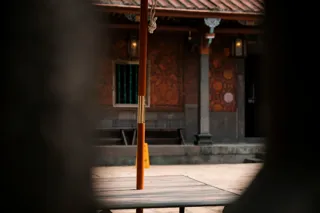Demystifying The Squatter Definition
Squatter’s rights, also known as adverse possession, can confuse many Ohio homeowners and real estate investors. Essentially, it refers to someone’s legal right to claim ownership of a property if they have been using it without the rightful owner’s permission for a certain period of time.
Even if the original owner has the deed or title, a squatter may gain legal ownership by meeting specific requirements. These requirements often include openly occupying the property, paying property taxes, and maintaining the land for a set period.
Understanding the definition and implications of squatter’s rights is essential for homeowners and Ohio investors to protect their properties from potential adverse possession claims.
Squatter Vs. Trespasser: What’s The Difference?

When dealing with unwanted individuals on your property, it’s important to understand the difference between a squatter and a trespasser. A squatter occupies a property without permission or legal right, while a trespasser enters the property without permission but does not intend to live there.
While both are considered illegal, squatters have potential rights and can claim property ownership if specific criteria are met. Trespassers, on the other hand, do not have any legal rights and can be removed immediately.
Ohio homeowners and real estate investors should familiarize themselves with the distinctions between these two types of individuals to avoid confusion and potential legal issues.
The Truth About Holdover Tenants
One aspect of squatter’s rights often misunderstood is the concept of holdover tenants. Holdover tenants remain on the property after their lease has expired without the landlord’s permission.
In Ohio, holdover tenants do not have the same rights as squatters and can be evicted legally. However, homeowners and real estate investors need to understand the specific laws and procedures for dealing with holdover tenants to avoid potential legal issues.
By understanding the truth about holdover tenants, Ohio homeowners and real estate investors can protect their properties and make informed decisions about managing their rental properties.
Exploring Ohio’s Adverse Possession Laws

In Ohio, adverse possession laws allow individuals to claim ownership of a property if they have occupied it continuously for a certain period and meet specific requirements. This legal concept, or “squatter’s rights,” can be complex and often leads to disputes between homeowners and real estate investors.
Understanding the specifics of Ohio’s adverse possession laws is crucial for both parties, as it can have significant implications on property ownership and investments. It is important to know the criteria for claiming adverse possession, such as open and notorious use of the property, payment of property taxes, and good faith belief of ownership.
Additionally, specific time frames must be met before a claim can be made. By exploring Ohio’s adverse possession laws in detail, homeowners and real estate investors can understand their rights and responsibilities regarding this legal concept.
Protecting Your Property: Ohio’s Squatter’s Rights
Squatter’s rights, also known as adverse possession, can be tricky for Ohio homeowners and real estate investors to navigate. Essentially, it allows someone living on another person’s property without permission to claim legal ownership for a certain time.
This can be concerning for property owners worried about losing their land or investors looking to purchase properties with potential squatters. However, specific steps can be taken to protect your property from adverse possession claims in Ohio.
These include regular property inspections, promptly addressing trespassing issues, and documenting interactions with potential squatters. Understanding Ohio’s squatter’s rights and taking proactive measures can safeguard your property and investments from these legal complications.
Tips To Prevent Squatters On Your Property

As a homeowner or real estate investor in Ohio, it is important to understand squatter’s rights and how they can affect your property. Squatters occupy a property without permission or legal right, often taking advantage of abandoned or unoccupied properties.
Several tips can help prevent squatters from entering your property. First, regularly check your properties and address any signs of potential squatting.
Keep your property well-maintained and secure with sturdy locks and fences to discourage unauthorized entry. Establish clear ownership and occupancy of the property through proper documentation and consistent use.
Finally, if you discover squatters on your property, taking immediate legal action to evict them and protect your rights as a property owner is crucial. Following these tips can help prevent the headache and potential financial loss of dealing with squatters on your property.
Legal Options To Remove Squatters In Ohio
Squatter’s rights can be a significant concern for Ohio homeowners and real estate investors. These individuals may find themselves dealing with unwanted occupants taking advantage of the state’s lenient laws on squatting.
However, there are legal options available to remove squatters in Ohio. One option is to file for an eviction through the court system, which can be lengthy and costly.
Another option is to file a trespass complaint with the police, which may result in their immediate removal. Additionally, property owners can also take steps to secure their vacant properties and prevent squatting from occurring in the first place.
Ohio homeowners and real estate investors need to understand these legal options and take action promptly if they encounter squatters on their property.
Navigating The Legal Process Of Removing Squatters In Ohio

Navigating the legal process of removing squatters in Ohio can be daunting and complex for homeowners and real estate investors. Understanding the laws and regulations surrounding squatters’ rights is crucial to successfully evicting these unauthorized occupants from your property.
In Ohio, squatters occupy property without permission or legal rights. To remove them, you must follow specific legal procedures and provide evidence that the occupants are indeed squatters.
This involves filing an eviction lawsuit with the court, providing proper notice to the squatters, and attending a hearing where a judge will decide on the case. It is important to have an experienced attorney guide you through this process to ensure it is done correctly and efficiently.
Understanding The Role Of Adverse Possession In Squatting Cases
Adverse possession is key to understanding the squatter’s rights, particularly in squatting cases. In Ohio, adverse possession allows a person to gain legal property ownership by occupying it for a certain period and meeting specific requirements.
This means that even if the original owner has not permitted someone to occupy their property, they may still acquire ownership through adverse possession. However, this does not apply to all situations, and certain elements must be met for adverse possession to be claimed.
Homeowners and real estate investors in Ohio need to understand the role that adverse possession plays in squatting cases to protect their properties and investments.
The Impact Of Holdover Tenants On Property Ownership

One of the significant challenges Ohio homeowners and real estate investors face is dealing with holdover tenants and understanding their impact on property ownership. Holdover tenants continue to occupy a property even after their lease has ended or been terminated.
This can be a complicated legal issue, as holdover tenants may have certain rights under squatter’s rights laws. They can also cause financial and logistical problems for property owners, such as not paying rent or damaging the property.
Homeowners and investors need to understand the laws surrounding holdover tenants to protect their ownership rights and effectively manage their properties.
A Comprehensive Guide To Handling Squatters On Your Land Or Property
Squatters’ rights can be complex and frustrating for Ohio homeowners and real estate investors. Understanding how to handle squatters on your land or property is crucial to protecting your rights and avoiding legal trouble.
It is important to know the laws and regulations in Ohio regarding squatters, as well as the steps you can take to evict them if necessary. This comprehensive guide will provide you with all the information you need to effectively deal with squatters, including how they gain rights, eviction procedures, and tips for preventing squatters in the first place.
By following these guidelines, you can ensure that your property remains under your control and avoid potential disputes with squatters.
How To Effectively Deal With Trespassers On Your Property
Dealing with trespassers on your property can be frustrating and concerning for Ohio homeowners and real estate investors. As someone who understands squatter’s rights, it is important to know how to effectively handle trespassers to protect your property and avoid legal complications.
The first step is to mark your property boundaries and post no-trespassing signs to indicate that the area is private. If you encounter a trespasser, communicate calmly and firmly, informing them of the boundaries and asking them to leave.
Documenting any interactions or incidents with trespassers is also helpful if legal action is needed. If the trespasser refuses to leave or becomes aggressive, sometimes involving law enforcement may be necessary.
Understanding the laws surrounding squatters’ rights can give you the knowledge and confidence to deal effectively with trespassers on your property.
The Importance Of Knowing Your State’s Adverse Possession Laws

Understanding the concept of squatter’s rights is crucial for both homeowners and real estate investors in Ohio. However, having a comprehensive understanding of your state’s adverse possession laws is equally important.
These laws vary from state to state and can significantly impact a property’s rights and ownership. As such, it is essential to be well-informed about the adverse possession laws in Ohio to protect your property or investment from potential legal disputes or claims.
Knowing these laws will also help you make informed decisions when dealing with squatters on your property. Whether you are a homeowner trying to safeguard your property or a real estate investor looking to maximize profits, having a thorough understanding of Ohio’s adverse possession laws is crucial in navigating any potential challenges that may arise.
Taking Action Against Squatters: A Step-by-step Guide
If you’re a homeowner or real estate investor in Ohio, it’s important to understand squatter rights and how to protect your property against potential invaders. Taking action against squatters can be daunting, but with a comprehensive step-by-step guide, you can confidently tackle this issue.
The first step is to gather evidence of the squatter’s occupation on your property, such as photographs, witness statements, and any communication with the individual. Next, contact local law enforcement and file a police report for trespassing or unlawful occupation.
It’s also wise to seek legal counsel to understand your rights and options for removing the squatter from your property. In some cases, eviction proceedings may be necessary if the squatter refuses to leave voluntarily.
Act quickly and decisively when dealing with squatters is crucial to protect your property and avoid potential legal complications.
How Long Is Squatters Rights In Ohio?
Ohio homeowners and real estate investors should thoroughly understand squatter’s rights, as they can greatly impact their properties. In Ohio, the duration of a squatter’s rights is determined by the type of residential or commercial property.
For residential properties, squatters must occupy the premises continuously for 21 years before they can claim adverse possession. On the other hand, for commercial properties, squatters only need to occupy the space for ten years before making a claim.
Property owners must know these time frames and take necessary measures to protect their investments from potential adverse possession claims.
Can Police Remove Squatters In Ohio?

For Ohio homeowners and real estate investors, Squatter’s rights have become increasingly complex. Many are left wondering: Can police remove squatters in Ohio? The answer is not a simple yes or no.
The laws surrounding squatter’s rights vary from state to state and even within different municipalities in Ohio. However, there are specific steps that homeowners and investors can take to protect their property from unwanted occupants.
Understanding the legal definition of a squatter and the specific requirements for eviction in Ohio is crucial to effectively handling any potential squatter situations. By familiarizing themselves with these laws, homeowners and real estate investors can confidently navigate the intricacies of squatter’s rights in Ohio.
What Are The 5 Requirements For Adverse Possession In Ohio?
In Ohio, adverse possession, also known as squatter’s rights, is a legal concept allowing individuals to gain property ownership by openly occupying it for a certain period. However, specific requirements must be met to successfully claim adverse possession in Ohio.
These include continuous and uninterrupted possession for 21 years, open and notorious use of the property, hostile or adverse intent towards the true owner, payment of property taxes during occupancy, and exclusive possession without permission from the true owner. Ohio’s homeowners and real estate investors must understand these requirements to protect their property rights and avoid potential legal disputes.
This comprehensive guide will detail each requirement and provide valuable insights for those navigating the complex world of squatter’s rights in Ohio.
What Is The Ohio Revised Code For Squatters?
The Ohio Revised Code (ORC) outlines the laws and regulations surrounding squatters’ rights in the state.
According to the ORC, a person who occupies a property without permission or legal right can gain ownership through adverse possession after residing there for 21 years.
However, this timeline can be reduced to as little as ten years if certain conditions are met, such as paying taxes on the property and openly claiming ownership.
Ohio homeowners and real estate investors must understand the ORC regarding squatters’ rights to protect their properties and investments.

